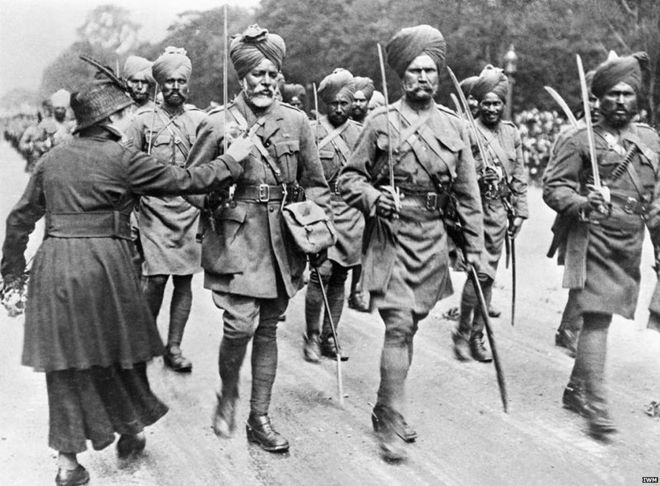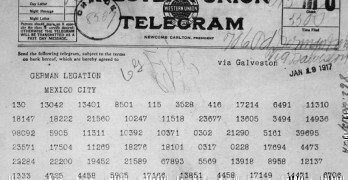 |
| Indian soldiers marching off to war in WWI. Although a number of Indian soldiers died in combat, their contribution to the war remains largely forgotten today. |
America's involvement in WWI was a combination of nationalist sentiment and the need for economic self-preservation. Nearing the end of WWI, Germany and Britain were stuck in a deadlock and sought to starve their enemy. Both Germany and Britain did their best to stop all ships from reaching their enemy, even if they were neutral. However, America primarily supported the Allies for two reasons. First, Britain had strong economic ties with the US, and American businesses made more trades with the Allies than with the Central Powers. Secondly, Germany began using U-boats to tip the scales in their favor, declaring waters around Britain a war zone. When they fired upon and sank the British Lusitania, causing a number of American deaths, which incited anti-German sentiments in America. Germany initially agreed to America's demands to not fire on merchant ships. However, Germany later announced unrestricted submarine warfare, in an all-out attempt to win the war, which caused America to cut ties with Germany.
 |
| A U-Boat. Short for "undersea boat", U-boats served as an important tactical device. They were used in an attempt to break the British blockade and block supplies from reaching the Allies. |
 |
| A U-boat sank the RMS Lusitania in May 1915. There were 128 American deaths as a result of this attack. |
 |
| The Zimmerman Telegram was a German note sent in code. The British got hold of this note and quickly released it to the United States |
1 comment:
It's interesting to see how the United States got involved, and how we basically got forced into it.
Post a Comment